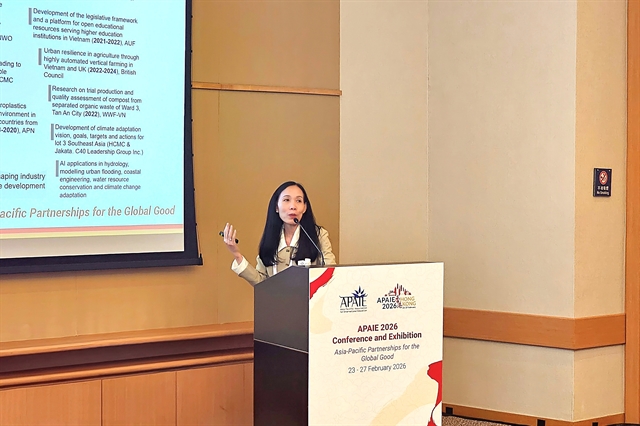 Media-OutReach Newswire
Media-OutReach Newswire

HONG KONG,CHINA - Media OutReach - 5 November 2019 - Investment volume in Mainland China's commercial real estate (CRE)investment market strengthened in Q3, with deals over RMB 100 million totalingRMB 49.7 billion, up 28% q-o-q, according to Cushman & Wakefield Research'slatest Greater China Capital MarketsExpress report. However, when compared with last year's peak levels, the totalinvestment level in the CRE market in Q3 was down 28% y-o-y.
Catherine Chen, Head of Capital MarketResearch, Greater China at Cushman & Wakefield and author of the report, commented: "A notableshift was the return of domestic buyers, who took more than 90% of thequarter's investment volume, with a dominant advantage in acquiring publiclyauctioned assets and pre-distressed assets. We also witnessed an increase indemand from owner-occupiers in acquiring office assets, largely domesticinvestors."
JamesShepherd, Head of Research, Asia Pacific at Cushman & Wakefield, stated: "Thegovernment's clampdown on real estate developer financing does presentopportunities for international investors in the Mainland China market, yet,despite this, we have seen a significant slide in transaction volume over thepast two quarters. Headwinds from trade tensions, coupled with the weakeningyuan, have created increasing challenges for international investors. However,we still see significant interest from investors from Hong Kong China and Singapore,and we expect considerable pent-up demand to be released once greater certaintyaround the RMB exchange rate becomes more apparent."
Over thefirst three quarters, Hong Kong-based investors have deployed an impressive RMB16.3 billion, followed by investors from Singapore who have invested RMB 9.6billion into Mainland China's CRE market. Notable deals have included Hong Kong-basedLink REIT's acquisition of Shenzhen's Central Walk for RMB 6.6 billion. Singapore-basedKeppel has made multiple purchases, including Yi Fang Tower in Shanghai,Zhongguancun Neo in Beijing, a joint investment into Westmin Plaza inGuangzhou, and most recently in Q4, Ronsin Technology Center via AlphaInvestment Partners.
The office sectorrepresented 55% of the quarter's investment, primarily driven by a few largetransactions in Beijing, namely the purchases of Lize Plaza, Pangu Plaza andHNA Plaza, all by domestic buyers. Nonetheless, excluding Beijing, officeinvestment volume (including office space in mixed use developments) weakenedin most of the Tier One and Tier Two cities tracked by Cushman and Wakefield. Theweakening investment was primarily due to softening office leasing demand, as netabsorption levels for the first three quarters of 2019 were down 56% and 58% incomparison to the same period in 2017 and 2018, respectively.
Contributingfactors to the weakening demand in the office leasing sector included slowerexpansion of co-working operators and financial services companies, and ageneral cost-saving strategy adopted by most tenants given ongoing tradetensions and a slowdown in economic growth.
Chen added: "Looking ahead, we expect that therecent preliminary agreement reached by China and the U.S. on trade will likelyprovide some market confidence, and in turn will hopefully support end-userdemand, rental levels, and ultimately gross yields towards yearend and in 2020."
Investmentin retail assets saw a boost over the first three quarters, with investmentvolume up 55% y-o-y. The recovery in retail sales could be attributed to recentpersonal tax cuts and the implementation of new e-commerce regulations withstricter requirements on business registration and taxation -- especially onoverseas e-commerce retailers and personal shoppers. The narrowing gap betweenoverseas and home-market prices should in turn help to bring some demand backto the home market, and back to bricks-and-mortar retailers active in China.
Riding onthe wave of returning demand, several substantial retail assets changed handsthis quarter, including Vipshop's buyout of Shanshan Group China outletsportfolio and China Everbright's acquisition of Zhongguancun Times ShoppingCenter in Beijing.
Francis Li, International Director, VicePresident, Greater China, Head of Capital Markets, Greater China at Cushman& Wakefield, concluded: "Despite a slowdown in the overall investmentvolume in Mainland China over the past two quarters we still observe stronginvestor interest, especially in high-grade logistics assets and alternativeasset classes such as data centers. As the largest nation in the Asia Pacificregion, both in terms of geographical size and economic power, China offers anarray of investment opportunities across many product types and stands as anindispensable investment destination for many international investors."
Click here to view the full report.
Cushman & Wakefield (NYSE: CWK) is a leading globalreal estate services firm that delivers exceptional value for real estateoccupiers and owners. Cushman & Wakefield is among the largest real estateservices firms with 51,000 employees in approximately 400 offices and 70countries. Across Greater China, there are 22 offices servicing the localmarket. The company won four of the top awards in the Euromoney Survey 2017& 2018 in the categories of Overall, Agency Letting/Sales, Valuation andResearch in China. In 2018, the firm had revenue of $8.2 billion across coreservices of property, facilities and project management, leasing, capitalmarkets, valuation and other services. To learn more, visit www.cushmanwakefield.com.hk or follow us onLinkedIn (https://www.linkedin.com/company/cushman-&-wakefield-greater-china)




